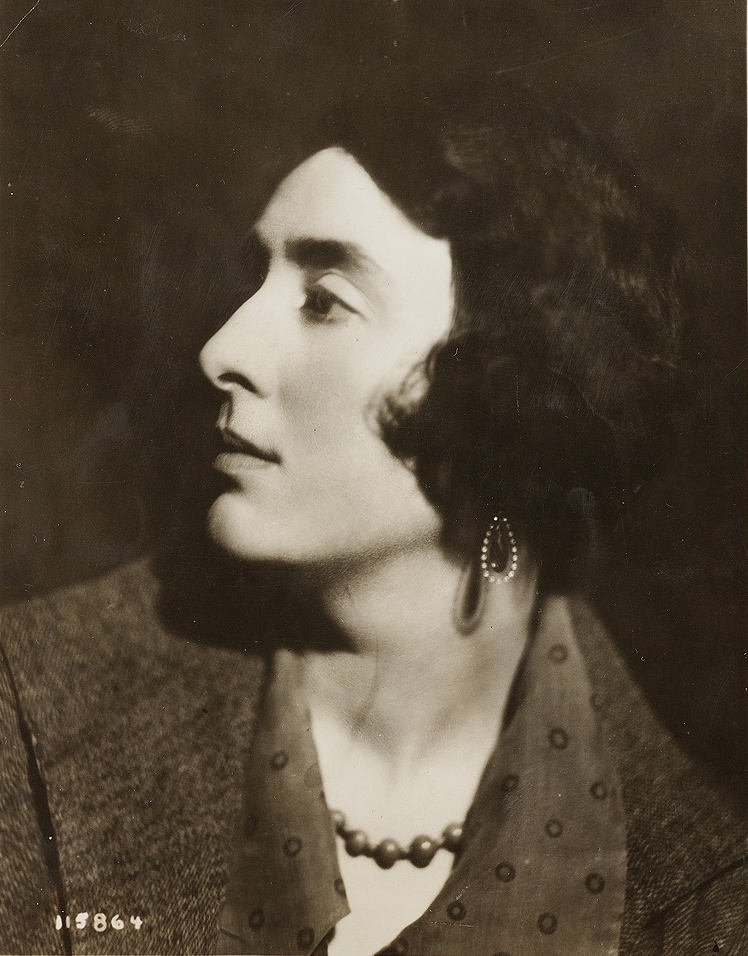Richmond Read-along 64

Welcome back to the Richmond Read-along! Today we are reading a poem from Vita Sackville-West. Now best known for the impressive garden she nurtured at Sissinghurst, Sackville-West was an accomplished author and poet. During her life she was better regarded – and better-selling – than Virginia Woolf, with whom she had a passionate and artistically fruitful affair, both women having great respect for the other’s writing. The openly bisexual Sackville-West was the inspiration for Woolf’s “Orlando.”
While her most loved writing was her novels and gardening essays, Sackville-West also produced a significant amount of poetry. Sackville-West’s poems tended towards a preoccupation with daily life, and often dealt with her beloved gardening or harked back to the childhood home she desperately loved but was unable to inherit due to her gender. They also show a playfulness with form – many of them eschew traditional rhyming schemes and instead rely on their topics, overall use of language, and rhythm to portray the author’s poetic sensibility.
Today we are reading “Night:”
“Moonlight through lattice throws a chequered square;
Night! and I wake in my low-ceilinged room
To lovely silence deep with harmony;
Sweet are the flutes of night-time, sweet the spell
Lies between day and day. This wise old night,
That, unreproachful, gives the pause to strife!
The murmurous diapason of the dark
Within the house made quick and intimate
By tiny noise—a bat? a mouse? a moth
Bruising against the ceiling? or a bird
Nested beneath the eaves? night, grave and huge
Outside with swell of sighing through the boughs,
Whispering far over unscythèd meadows,
Dying in dim cool cloisters of the woods.
I have been absent. I have found unchanged
The oaks, the slope and order of the fields;
I knew the wealden fragrance, and that old
Dear stubborn enemy of mine, the clay.
Nothing to mark the difference of year
But young wheat springing where I left the roots,
And last year’s pasture browned to this year’s plough;
Last year the crop was niggard on the orchard,
But blossom now foretells the weighted branches,
And the great stack, that like a galleon
Rode beneath furled tarpaulins last July,
Showed its bare brushwood as I passed to-day.
Where the sun rises, that I know of old;
Knowledge precedes me round the turn of the lane,
And I could take you where the orchids grow
Friendly with cowslips; where the bluebell pulls
Smooth from its bulb, bleached where it grew concealed,
Hidden from light; the tiny brook is eager,
Quick with spring rains, bright April rains, and fills
The pool where drowsy cattle slouch to drink.
Familiar! oh, familiar! native speech
Comes not more readily than that dear sense
Of bend and depth of country. This is Kent,
Unflaunting England, where the steaming mould,
Not plaintive, not regretful, lies content
That leaves should spring from sacrifice of leaves.
My Saxon weald! my cool and candid weald!
Dear God! the heart, the very heart of me
That plays and strays, a truant in strange lands,
Always returns and finds its inward peace,
Its swing of truth, its measure of restraint,
Here among meadows, orchards, lanes, and shaws.
Take me then close, O branches, take me close;
Whisper me all the secrets of the sap,
You branches fragile, tentative, that stretch
Your moonlit blossom to my open window,
Messengers of the gentle weald, encroaching
So shyly on the shelter of the house;
Cradle me, hammock me amongst you; let
Night’s quietude so drench my sleepy spirit
That morning shall not rob me of that calm.
Your buds against my pulses; so I lie
Wakeful as though in tree-tops, and the sap
Creeps through my blood, up from the scented earth.
… The birds are restless underneath the eaves,
Down in the byre the uneasy cattle stir,
And through the fret of branches grows the dawn.”
You can find this poem in “Orchard and Vineyard” on Project Gutenberg. Read more about Sackville-West at the Literary Ladies Guide.
Join us tomorrow for the next Richmond Read-along!
